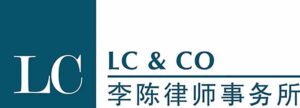Letters of credit (LCs) are one of the most important settlement methods in international trade. Under the principle of independence, the legal relationship connected to a letter of credit is independent of the underlying transaction, with the bank only doing a superficial check of the agreed documents. This ensures the smooth operation of the letter of credit system.
The fraud exception
There are, however, exceptions to any legal principle. The so-called “letter of credit fraud exception” means that when a beneficiary acts in bad faith by attempting to convert foreign exchange on the strength of fraudulent documents to obtain payment under an LC, the bank has the right to refuse payment, or the LC applicant or other materially interested party has the right to petition a court to stay payment of the amount under the LC. This is commonly referred to as enjoinment.
The Supreme People’s Court defines letter of credit fraud, and sets forth the conditions under which a materially interested party may petition a court for enjoinment of payment and the procedures for doing so, in some detail in the Several Issues Concerning the Trial of Cases of Disputes over Letters of Credit Regulations. The Regulations entered into effect on 1 January 2006.
Letter of credit fraud

Partner
LC & Co
Bad faith on the part of the beneficiary constitutes a necessary condition for letter of credit fraud. This may include the beneficiary forging documents, failing to deliver the goods in bad faith or colluding in submitting fraudulent documents, as set forth in Article 8 of the Regulations.
However, if the documents submitted by the beneficiary are fraudulent, but the beneficiary is not aware of this fact, should the beneficiary still be deemed to have committed fraud?
The answer to this question must be ‘generally not’, because the beneficiary clearly did not willfully act in a fraudulent manner. Judicial practice seems to support this interpretation. For example, the Tianjin Maritime Court held in case (2003) Jin Hai Shang Chu Zi No. 403 that because the beneficiary (an intermediary in a chain trade) was not aware that a document (an antedated bill of lading) was fraudulent and did not act willfully, the fraud exception did not apply.
Similarly, in case (2000) Su Jing Zhong Zi No. 276, the Jiangsu Provincial Higher People’s Court held that there was no evidence that the beneficiary had participated in the fraud, even though the accompanying documents were forgeries.
Based on the general principles of civil law, if a party intentionally gives another party false information or intentionally conceals the truth, inducing the other party to make an erroneous declaration of intent, such act can be deemed fraud (Article 68 of the Several Issues Concerning the Implementation of the General Provisions of the PRC Civil Code Opinions).
However, in letter of credit fraud cases, Chinese courts, on the whole, adopt stricter criteria in determining the existence of fraud. For example, in case (2003) Su Min San Zhong Zi No. 052, notwithstanding the fact that the beneficiary was well aware that the bill of lading that it submitted was antedated, neither the court at first instance nor the appellate court held that the beneficiary had committed fraud with malicious intent.
The Supreme People’s Court also pointed out that an antedated bill of lading did not necessarily constitute LC fraud.
Irreparable damage

Lawyer
LC & Co
Article 9 of the Regulations requires a party with a material interest in a letter of credit to show that he will suffer irreparable damage before he can petition the court for enjoinment of payment. Courts have not yet clearly defined the precise meaning of “irreparable damage”.
Pursuant to Article 11 of the Regulations, a materially interested party is responsible for showing to the court that “if the measure of staying payment of the amount under the LC is not taken, the lawful rights and interests of the applicant will suffer irreparable damage”.
For example, if the beneficiary fails to deliver the goods in bad faith and uses fake documents fraudulently to obtain the amount under the LC, failure to enjoin payment in a timely manner will cause the LC applicant to suffer an irreparable loss (i.e. he will be left without the money and the goods). However, in some cases, the loss by the LC applicant of the opportunity itself to refuse to make payment constitutes material damage.
From the perspective of judicial practice before the issuance of the Regulations, it can be seen that success in applying for court enjoinment of payment required the materially interested party (e.g. an LC applicant) to show that he would suffer “material damage” or “actual damage” from the fraud.
For example, in the aforementioned case, (2003) Su Min San Zhong Zi No. 052, the court held that, as the antedating of the bill of lading was not itself the cause of the delay to the vessel, and the goods were not damaged as a result, the antedating of the bill of lading did not cause material damage, and the opening bank could not refuse to make payment.
Most of these cases involve export trade and the party applying for enjoinment of payment is the foreign buyer. In contrast, in import trade, some courts, out of consideration for protection of the interests of domestic buyers, will relax the requirements for enjoinment of payment.
Future prospects
From the attitude of the Supreme People’s Court it can be seen that courts are required to take a strict stance on the conditions under which the fraud exception may be applied, and are strictly prohibited from ruling at their discretion to enjoin payment under LCs.
However, there does not yet appear to be consistency in the criteria applied in enjoinment rulings between different courts, and we fear that the current situation, in which judgments are sometimes mutually contradictory, will not be easily ameliorated in the short term.
Weidong Chen is a partner of LC & Co
Jessy Wang is a lawyer at LC & Co

Suite 802A, Building B
Jinying Mansion, 1518 Minsheng Road
Shanghai, China
Postal code: 200135
Tel: +86 21 6104 2958
Fax: +86 21 6104 2959
www.lclaw.cn
Weidong Chen
E-mail: weidong.chen@lclaw.cn
Jessy Wang
E-mail: jessy.wang@lclaw.cn



















